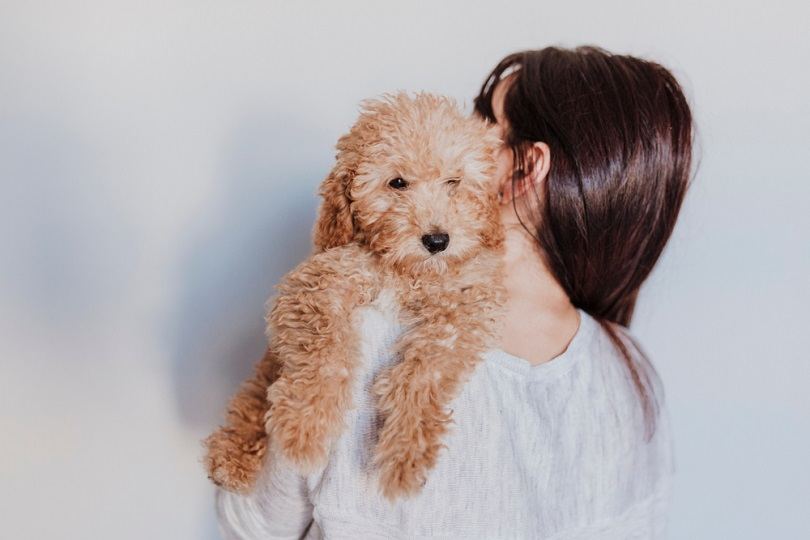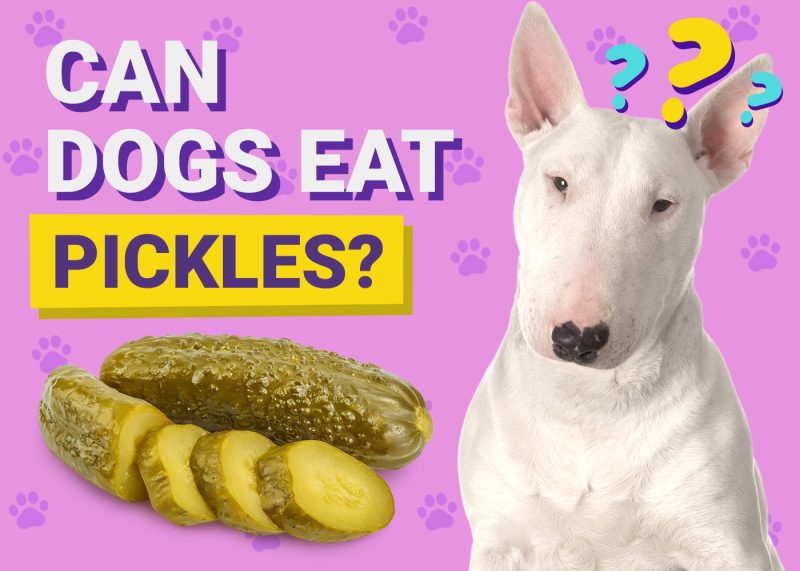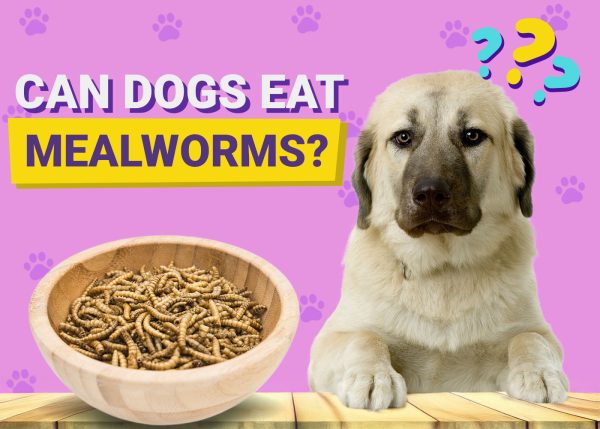In this article
Are Poodles hypoallergenic? It’s a common question for those who are looking for a new furry friend but have allergies. The quick answer is yes, Poodles are considered hypoallergenic! However, it’s important to point out that no dog is truly 100% hypoallergenic. So, what does the term actually mean, and why are Poodles considered hypoallergenic? Let’s take a look at the science behind it all.

The Science of Hypoallergenic Dog Breeds
When we talk about a dog being hypoallergenic (or any animal, for that matter), we’re really talking about two things: pet dander and saliva. Dander is made of tiny dead skin cells that are constantly shed from an animal’s body. These cells contain proteins that can cause an allergic reaction in some people. Saliva also has proteins that can cause an allergic reaction, and when a dog licks their coat, that saliva gets deposited on the fur and can transfer to humans.
So, why are Poodles considered hypoallergenic? It has to do with their coat. This breed has a dense coat of curly hair that doesn’t shed much. This means there is less dander being released into the air and less chance of coming into contact with saliva.
Again, no dog is truly hypoallergenic because all canines produce dander and saliva. But Poodles are considered to be among the best choices for people with allergies.
What Is a Hypoallergenic Dog, and Why Are They Important for Some People?
In general, the term “hypoallergenic” is used to describe dogs that are less likely to cause an allergic reaction. It’s important to note that they’re less likely but not unlikely, as there is no such thing as a completely hypoallergenic canine. All dogs produce at least some form of dander (dead skin cells) and saliva, which contain proteins that can trigger allergies. However, some dogs produce less of these proteins than others, which is what makes them “hypoallergenic.”
There are different levels of severity when it comes to allergies, and not all hypoallergenic dogs are created equal. Some may cause a mild reaction in people with allergies, while others may cause a more severe reaction. To complicate matters more, no two allergies are the same, meaning you can have a severe reaction to a dog that your friend has zero reaction to, even if you both have a dander allergy.
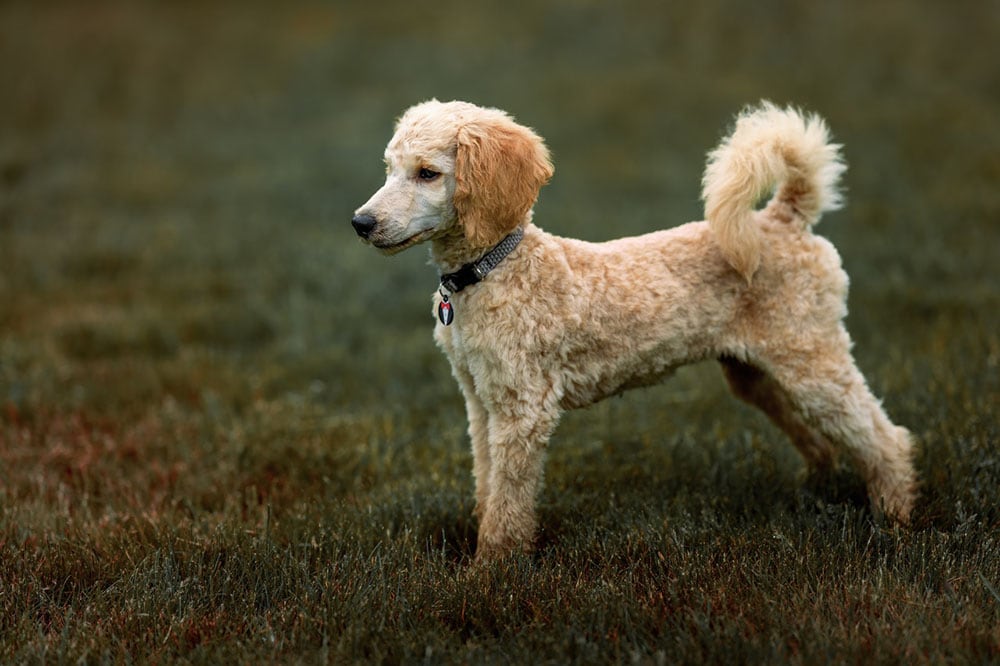
Is the Poodle Truly a Hypoallergenic Dog?
Poodles are often thought of as hypoallergenic dogs, but there is some debate on this topic. While it is true that Poodles do not shed much, they still produce dander and saliva, which can trigger allergies in susceptible people. In addition, these dogs require regular grooming, which can also be a problem for those with allergies.
However, there are some people who are able to live happily with Poodles despite their allergies. The best way to determine whether this breed is right for you is to spend time around one of these dogs to see if you have a reaction. If you do decide to get a Poodle, be sure to work with a reputable breeder to choose a dog that has been bred for allergy resistance.

Tips for Choosing the Most Hypoallergenic Poodle
When it comes to hypoallergenic dogs, the Poodle is often at the top of the list. But did you know that there are actually three different types of Poodles? These are Standard, Miniature, and Toy. Within those categories, there are a variety of coat colors and textures. So, how do you know which Poodle is right for you? Here are a few things to keep in mind.
The Type of Poodle
Standard Poodles are the largest of the three, and their hair is usually clipped in a show cut or another aesthetic style. Miniature Poodles are smaller and have a dense, curly coat that doesn’t require much grooming. Toy Poodles are the smallest of the three and have a fine, silky coat that can be styled in a variety of ways.
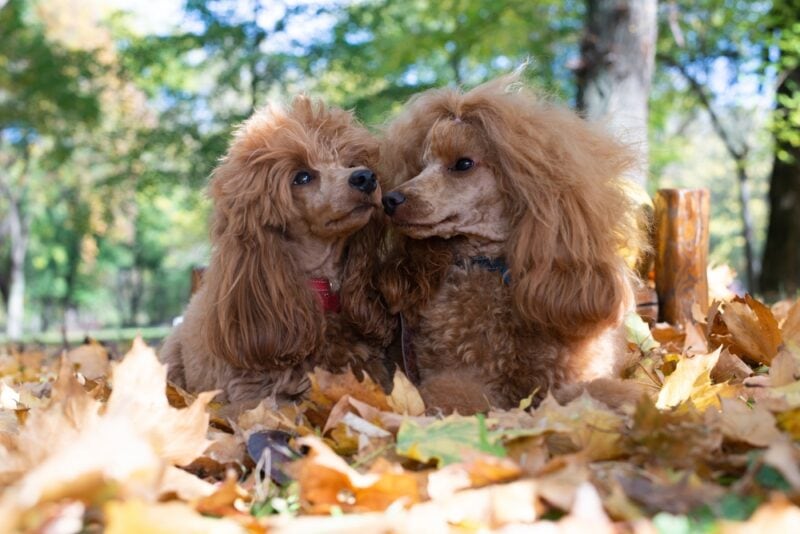
The Coat Color
Poodles come in a wide range of colors, including black, white, cream, brown, apricot, red, silver, blue, and gray. Some people prefer a certain color because it matches their home décor or clothing style. Others choose a hypoallergenic dog based on coat color because they’re allergic to certain dyes or chemicals used in grooming products.
The Coat Texture
Poodle coats can be either curly or straight. Curly-coated Poodles don’t shed as much as straight-coated Poodles, but they do require more regular grooming to prevent mats and tangles. Straight-coated Poodles shed more than curly-coated Poodles but don’t need to be groomed as often.
Once you’ve narrowed down your choices based on these factors, you can start meeting different types of Poodles to see which one is the best fit for your home and lifestyle.
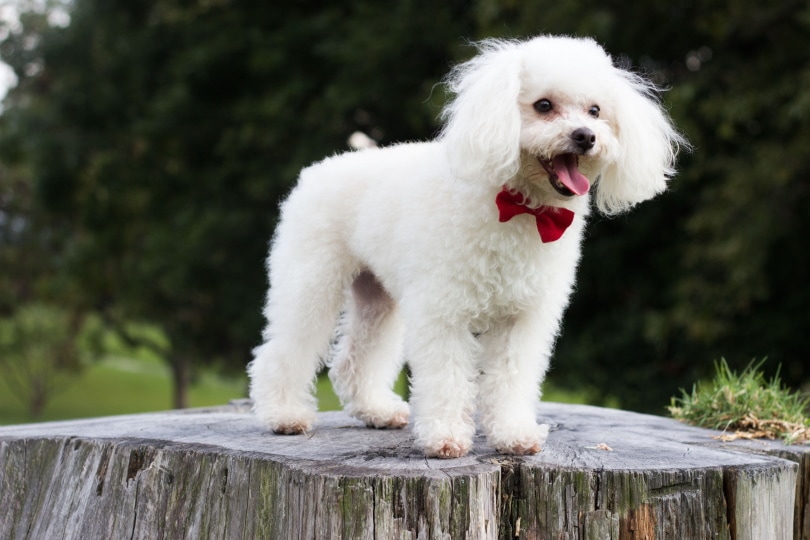

The Poodle’s Basic Care Needs
The Poodle is one of the most popular dog breeds, and it’s easy to see why. They are loyal and intelligent and have a non-shedding coat that comes in a variety of colors. But like all dogs, they require regular grooming and care in order to stay healthy and happy.
- Grooming: Poodles have a dense coat of hair that needs to be brushed regularly to prevent mats and tangles. They also need to be trimmed or clipped every 4 to 6 weeks.
- Exercise: Poodles are active dogs that need daily exercise. A long walk or game of fetch is a great way to keep your Poodle fit and healthy.
- Training: Poodles are quick learners, so training them is usually a breeze. However, they can be stubborn at times, so patience and consistency are key.
- Companionship: Like all dogs, Poodles need plenty of love and attention from their owners. They thrive on human interaction and should not be left alone for long periods of time.
If you’re thinking of adding a Poodle to your family, be sure you’re prepared to meet their grooming, exercise, and companionship needs. With the proper care, your Poodle will be a loyal friend for years to come.
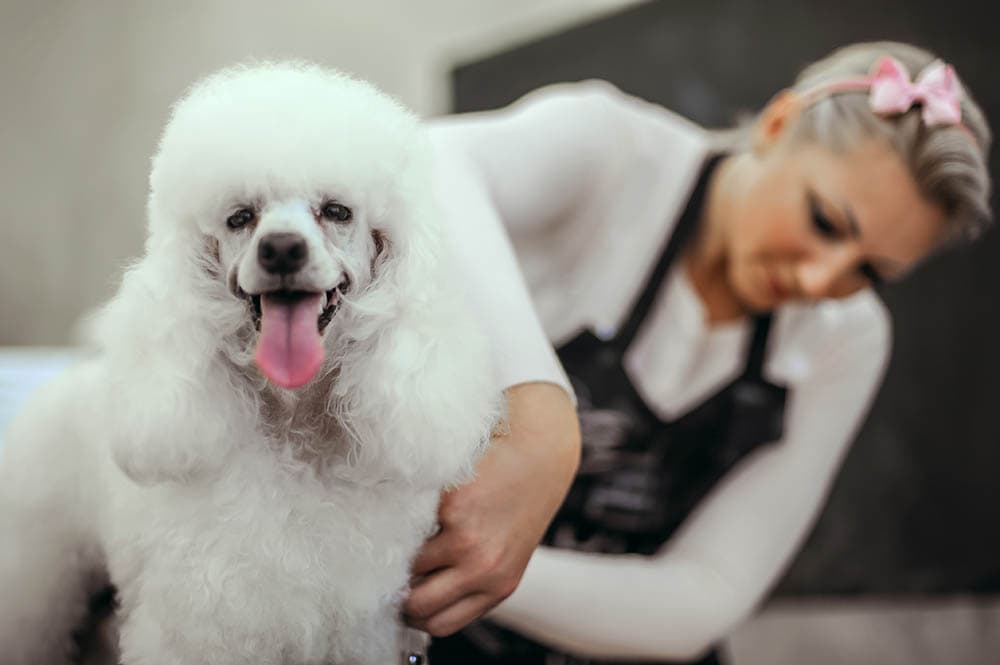

Conclusion
The Poodle can be a great option for people with allergies because they are also low shedding, which means that they do not shed their hair as much as other dogs. This is important because it means there will be less dander in the air and therefore, less of a chance of an allergic reaction. If you have allergies, it is important to talk to your allergist before getting a Poodle or any other breed. They will be able to help you determine if you are likely to have an allergic reaction to a Poodle.
See Also:
Featured Image Credit: Eva_blanco, Shutterstock
